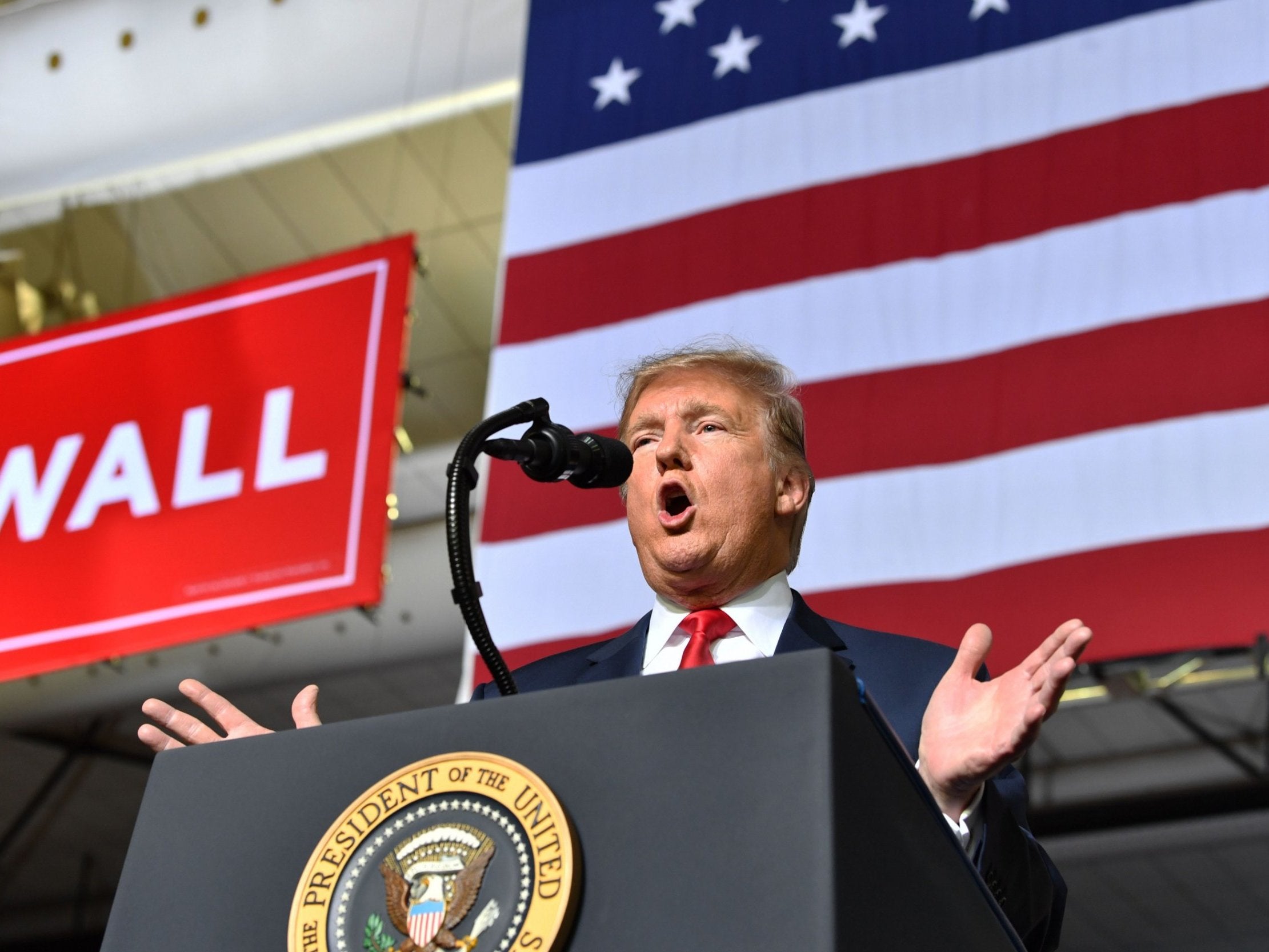Texas town continues to demand $500,000 from Trump four years after hosting rally
The City of El Paso has sent an “updated invoice statement” to the Trump campaign that includes a one-time delinquency charge of $98,787.58
Your support helps us to tell the story
From reproductive rights to climate change to Big Tech, The Independent is on the ground when the story is developing. Whether it's investigating the financials of Elon Musk's pro-Trump PAC or producing our latest documentary, 'The A Word', which shines a light on the American women fighting for reproductive rights, we know how important it is to parse out the facts from the messaging.
At such a critical moment in US history, we need reporters on the ground. Your donation allows us to keep sending journalists to speak to both sides of the story.
The Independent is trusted by Americans across the entire political spectrum. And unlike many other quality news outlets, we choose not to lock Americans out of our reporting and analysis with paywalls. We believe quality journalism should be available to everyone, paid for by those who can afford it.
Your support makes all the difference.Nearly five years after he held a reelection rally in El Paso, Texas, Donald Trump still owes the city more than $500,000 for police coverage, trash pickup and other municipal services — and local leaders have now slapped a six-figure late fee on the ex-president’s outstanding bill.
The City of El Paso sent an “updated invoice statement” to the Trump campaign that includes a one-time delinquency charge of $98,787.58, KTSM reported on Monday.
That adds a 21 percent premium to Trump’s original bill of $470,417.05, spread across six different city agencies. In all, El Paso authorities say the self-professed “law-and-order candidate” has stiffed them over $60,630.84 in Fire Department costs, $6,286.57 in Department of Aviation costs, $6,452 in Streets & Maintenance Department costs, $528 in Health Department costs, $15,577.52 in mass transit costs, and $380,942.12 in Police Department costs.
In all, Trump now owes El Paso $569,204.63, according to KTSM.

Trump held the rally in question on February 11, 2019, at the El Paso County Coliseum, and was billed on March 27, 2019, with payment due April 26, 2019, the invoice shows. The city followed up with a letter on May 23, 2019, to the Trump campaign, which read, “We are contacting you regarding the past due invoice(s) listed above. We realize this may have been an oversight on your part; however, your account with the city of El Paso is extremely past due.”
The Trump campaign paid $5,000 in advance to the Coliseum, according to the CEO of the El Paso Sports Commission.
It is hardly Trump’s only unpaid bill, nor is it the longest-pending.
Trump still owes the City of Bozeman, Montana, where he held a rally last Friday, nearly $13,000 in fees he racked up in 2018, which includes $10,835.41 for police salaries, and owes the City of Bozeman some $45,000 for officer pay, according to NBC Montana. In 2019, an analysis by the Center for Public Integrity found at the time that Trump owed various municipalities “at least” $841,219 in for services provided.

In 2016, before he was elected president, a USA Today investigation turned up hundreds of liens, judgments, and lawsuits filed by plumbers, painters, carpet installers, real estate brokers, waiters, bartenders, and others who accused Trump of stiffing them. Since then, he has been called out as a deadbeat by, among others, everyone from piano salesmen to electricians to veterans awaiting a promised $6 million donation to onetime Miami Vice star Don Johnson.
Many of Trump’s creditors have taken him to court over his past-due bills, and officials with the City of El Paso recently said they have consulted with attorneys about possible legal options. At the same time, an FEC spokesperson told NBC Montana that there is no formal mechanism in place to force the Trump campaign to settle its tab.
“While federal campaigns are permitted to use campaign funds to reimburse for these security costs,” FEC public affairs specialist Myles Martin said in an email, “Commission regulations do not specifically mandate that they do so.”